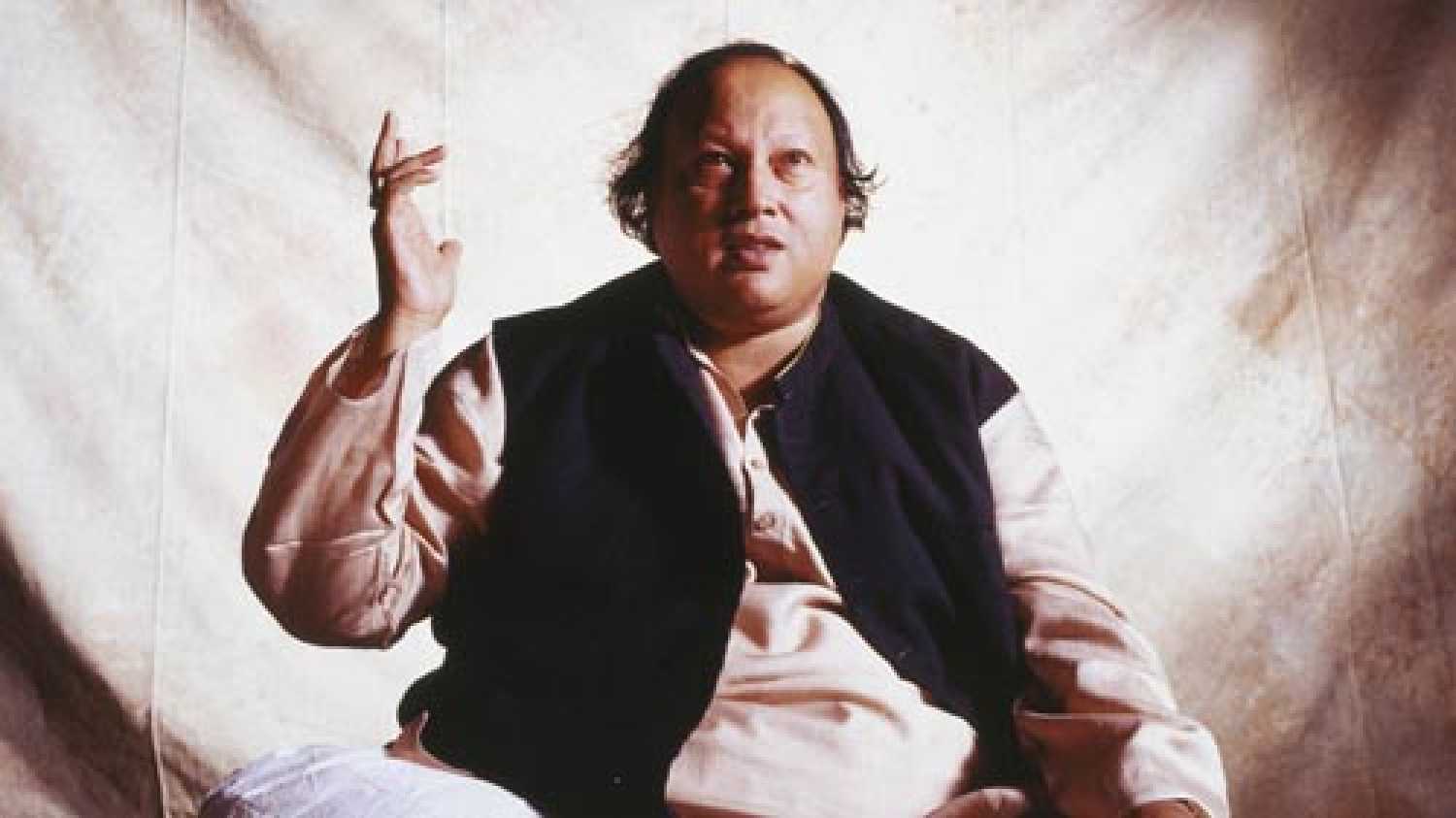
Nusrat Fateh Ali Khan Biography
Born : 13 October 1948, in Faisalabad, Punjab, Pakistan
Death : 16 August 1997
Khan's first official public performance was in 1966 at the studio recording for the annual musical celebration organized by Radio Pakistan, called 'Jashn-e-Baharan'. He often performed with his uncles until 1971, when Ustad Mubarak died and Nusrat took over the family Qawwali party ("Party" is a generic term used to describe a Qawwali ensemble). He sang in Urdu, Punjabi, as well as Persian.
In Pakistan, his first major hit was the song ‘Haq Ali Ali’ and within the next few years, he established himself throughout Pakistan and gained popularity for his signature high register and simple melodies. During his live performances, he fused contemporary musical influences with his classical training.
He reached out to Western audiences when he collaborated with the Canadian guitarist Michael Brook with a few fusion records. This gained him a vast international following. In 1985, he gave a concert in Britain and soon toured across Europe. He first toured the United States in 1989, and collaborated with a number of international artists such as Peter Gabriel who promoted Khan through his organisation, World of Music, Arts and Face (WOMAD), which held a number of festivals. He also recorded five albums of Nusrat’s performances in the traditional Qawwali style under the banner of his Real World Records label. Real World also released albums of his experimental work, including 'Mustt Mustt' and 'Star Rise'. ‘Mustt Mustt’ released in 1990 and was a deliberate attempt to target the western audience. His album ‘Intoxicated Spirits’ was nominated at the Grammy awards in 1997, for the Best Folk Traditional Album. Through these endeavours, he came to be known as an important figure within the World Music genre.
He received the UNESCO Music Prize in 1995, and the Arts and Culture Prize of the Fukuoka Asian Culture in 1996.
During the early 1990s, Khan released his private albums in India. His song 'Afreen' became an instant hit and shot him to instant recognition within music circuits in India. He recorded for two Hindi films, Aur Pyar Ho Gaya (1997), and Kachche Dhage (1999). Apart from that, he also gave his voice to the title track of the blockbuster film Dhadkan (2000). These movies were released posthumously.
In a troublesome time between India and Pakistan, Khan became a goodwill ambassador for the two nations. His melodies were loved across boundaries. Khan was also a contributor to the album Vande Matram by A R Rahman, with one song ‘Gurus of Peace.’ He also contributed to several international film soundtracks including The Last Temptation of Christ (1988) and Natural Born Killers (1994). He collaborated with the renowned Eddie Vedder on the soundtrack to Dead Man Walking (1995).